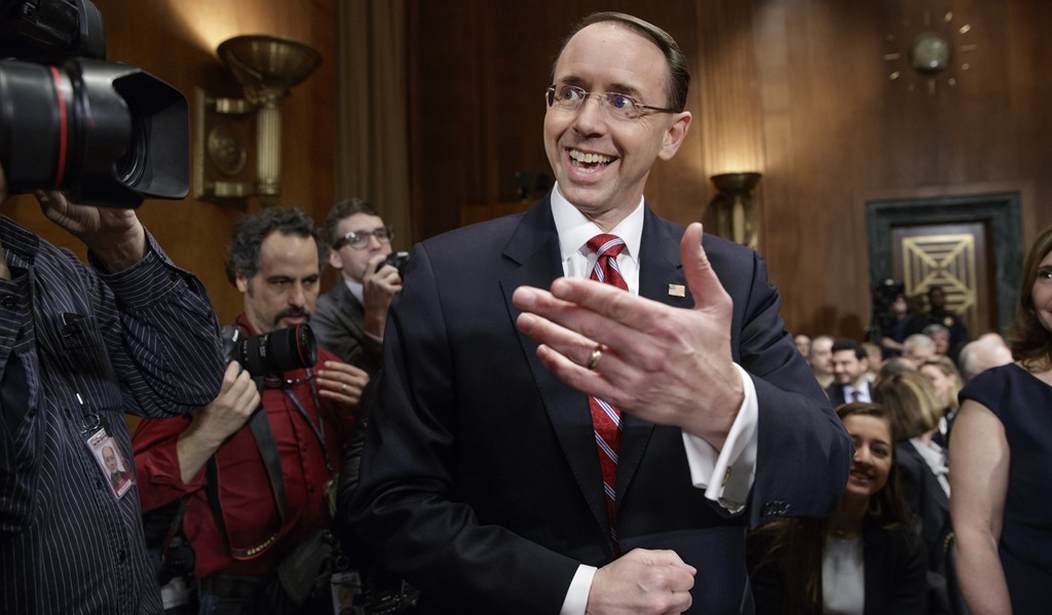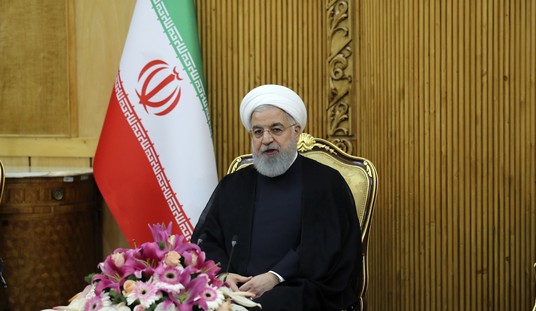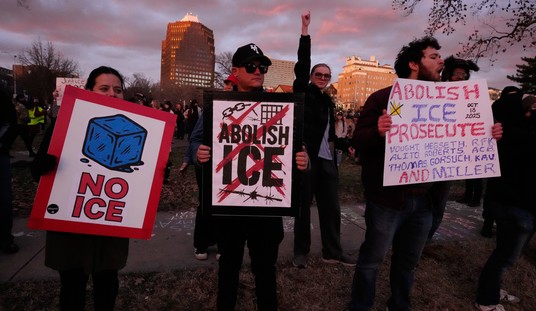Rod Rosenstein hasn’t backed down from his sharply critical memo about James Comey — and the White House might have even more reason to be thankful for that today, too. The deputy attorney general came to Congress today with even more credibility after having appointed Robert Mueller as special counsel for the probe into potential Russian interference in the election, in part to explain his Comey critique. Rosenstein declared that he stands by that memo, but that the decision to terminate Comey had already been made before he wrote it:
On May 8, I learned that President Trump intended to remove Director Comey and sought my advice and input. Notwithstanding my personal affection for Director Comey, I thought it was appropriate to seek a new leader.
I wrote a brief memorandum to the Attorney General summarizing my longstanding concerns about Director Comey’s public statements concerning the Secretary Clinton email investigation. I chose the issues to include in my memorandum. Before finalizing the memorandum on May 9, I asked a senior career attorney on my staff to review it. That attorney is an ethics expert who has worked in the Office of the Deputy Attorney General during multiple administrations. He was familiar with the issues. I informed the senior attorney that the President was going to remove Director Comey, that I was writing a memorandum to the Attorney General summarizing my own concerns, and that I wanted to confirm that everything in my memorandum was accurate. He concurred with the points raised in my memorandum. I also asked several other career Department attorneys to review the memorandum and provide edits.
My memorandum is not a legal brief; these are not issues of law. My memorandum is not a finding of official misconduct; the Inspector General will render his judgment about that issue in due course. My memorandum is not a statement of reasons to justify a for-cause termination. My memorandum is not a survey of FBI morale or performance. My memorandum is not a press release. It is a candid internal memorandum about the FBI Director’s public statements concerning a high-profile criminal investigation. I sent my signed memorandum to the Attorney General after noon on Tuesday, May 9.
I wrote it. I believe it. I stand by it.
Imagine a world where the White House stuck to one narrative to explain the firing, and kept the focus either on the issues raised in the Rosenstein memo or on Comey’s clumsy attempts to defend himself on those points earlier this month in Congress. The firing would have still generated some outrage, and this statement might still have suggested that Trump had other reasons in mind for giving Comey the hook. However, the straightforward case for Comey’s dismissal still stands up, which is why Rosenstein stands by it to this day. As it happens, the continuing hemorrhage of commentary from Trump, in public and otherwise, almost relegates Rosenstein’s statement today to complete irrelevancy.
It’s still worth reading in its entirety for other reasons, however. It turns out that the idea of replacing Comey didn’t start this month, and that the decision might have come between the election and the inauguration. Rosenstein revealed that Attorney General-nominee Jeff Sessions discussed the need to replace the FBI’s leadership “last winter,” when Sessions was still in the Senate:
In one of my first meetings with then-Senator Jeff Sessions last winter, we discussed the need for new leadership at the FBI. Among the concerns that I recall were to restore the credibility of the FBI, respect the established authority of the Department of Justice, limit public statements and eliminate leaks.
Rosenstein’s passion for this project during those early planning meetings was likely heightened by his own personal experience with Comey’s recklessness:
Director Comey attended the Maryland U.S. Attorney’s Office training seminar on October 27, 2016, and gave a detailed explanation of his reasons for making public statements about the conclusion of the Secretary Clinton email investigation. I strongly disagreed with his analysis, but I believe that he made his decisions in good faith.
The next day, October 28, Mr. Comey sent his letter to the Congress announcing that the FBI was reopening the Clinton email investigation. He subsequently has said that he believed he was obligated to send the letter. I completely disagree. He again usurped the authority of the Department of Justice, by sending the letter over the objection of the Department of Justice; flouted rules and deeply engrained traditions; and guaranteed that some people would accuse the FBI of interfering in the election.
Comey’s May 3rd testimony to Congress — just a few days after the Senate finally confirmed Rosenstein — appears to have put the final nail in the coffin:
Before the Senate Judiciary Committee on May 3, 2017, Director Comey testified under oath about his public statements concerning the Secretary Clinton email investigation. I strongly disagreed with his explanations, particularly his assertion that maintaining confidentiality about criminal investigations constitutes concealment. Nonetheless, I respected him personally.
Former Department of Justice officials from both political parties have criticized Director Comey’s decisions. It was not just an isolated mistake; the series of public statements about the email investigation, in my opinion, departed from the proper role of the FBI Director and damaged public confidence in the Bureau and the Department.
In other words, Comey’s days were numbered long before the axe fell last week, and Rosenstein had already begun to prepare the case for it long before writing his memo. That does prompt questions about why Trump professed to have confidence in Comey in the first weeks of his presidency; was he not aware of the plans Sessions and Rosenstein had after they were confirmed in office, or was he merely dissembling? One can make a case either way, but Rosenstein’s testimony suggests that the Russia probe had little to do with their thinking, and that Comey’s actions in 2016 actually was the basis for their planned leadership change.
Had the White House taken its time with the termination, built a public case around the May 3rd testimony, and had Trump stuck to that while refraining from all other comment, Rosenstein could have saved the president a whole lot of trouble.
McClatchy reported afterward that some members came away from the closed-door hearing saying that the probe is now also looking at the possibilities of a cover-up:
Investigators into Russian election meddling are now also probing whether White House officials have engaged in a cover-up, according to members of Congress who were briefed Friday by Deputy Attorney General Rod Rosenstein.
That avenue of investigation was added in recent weeks after revelations that President Donald Trump tried to dissuade FBI director James Comey from pressing an investigation into the actions of his first national security adviser, retired Army Lt. Gen. Michael Flynn, members of Congress said, though it was not clear who that part of the probe might target.
There is no other support in the piece for anything specific from Rosenstein on this point, however, and a cover-up is still missing one essential ingredient: a crime. This scooplet doesn’t appear very well sourced and pretty ambiguous, and these kinds of probes eventually get around to questions of deception at some point, but even that doesn’t mean a crime can be established. (Just ask Scooter Libby.) This sounds too amorphous on which dwell for long at this stage.








Join the conversation as a VIP Member